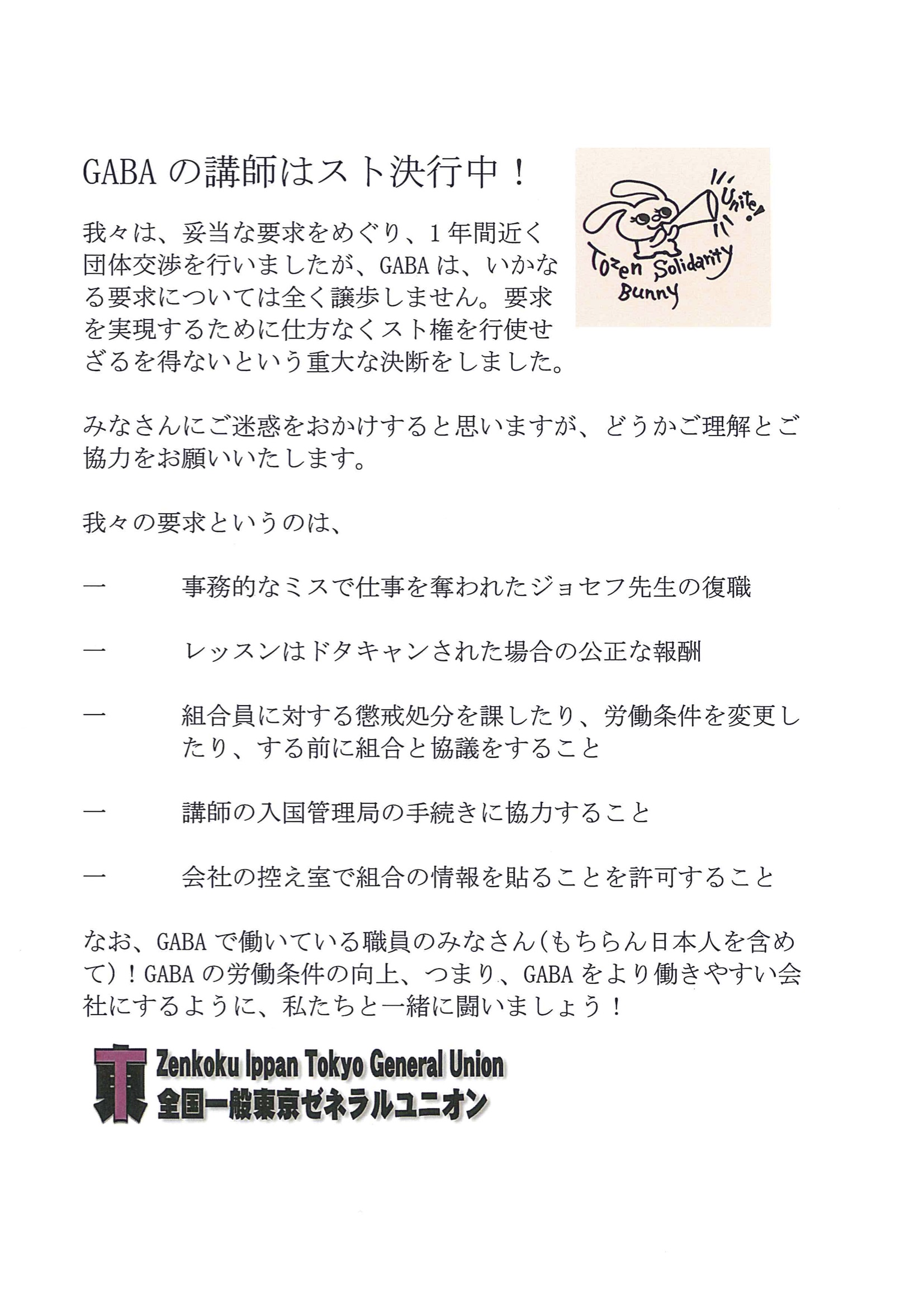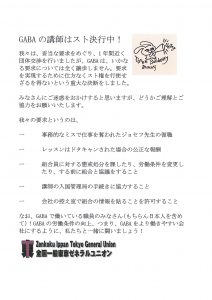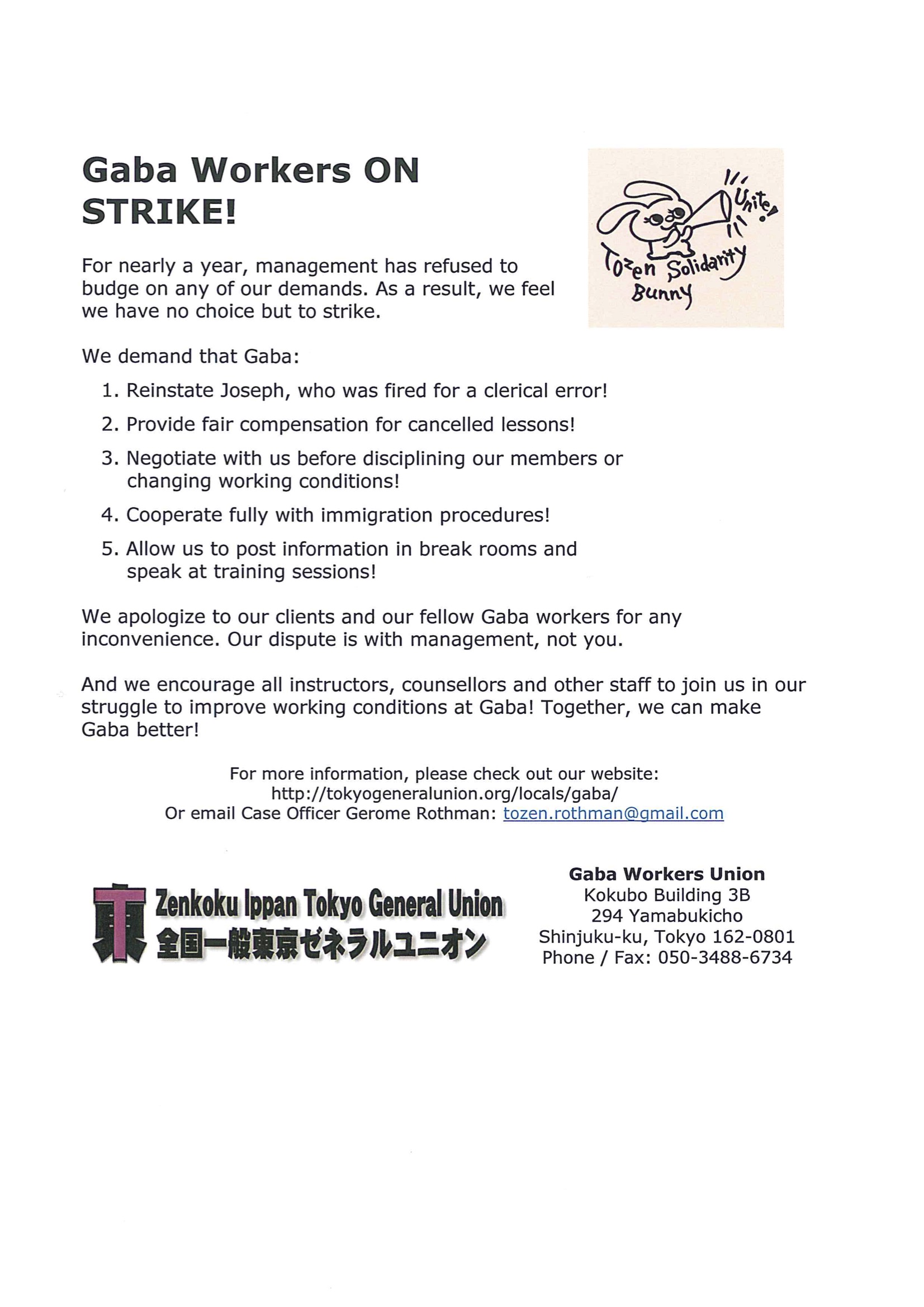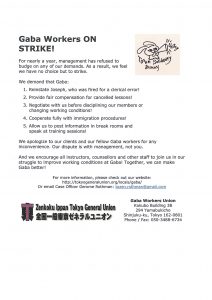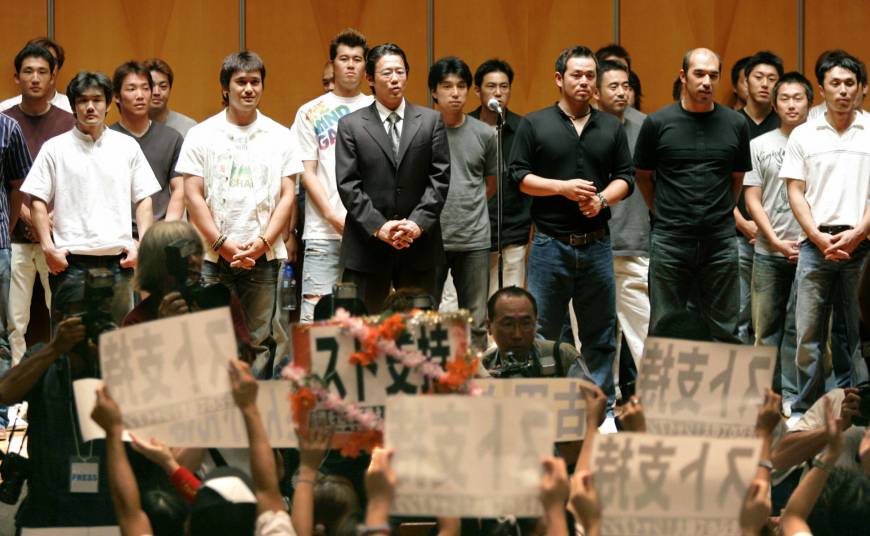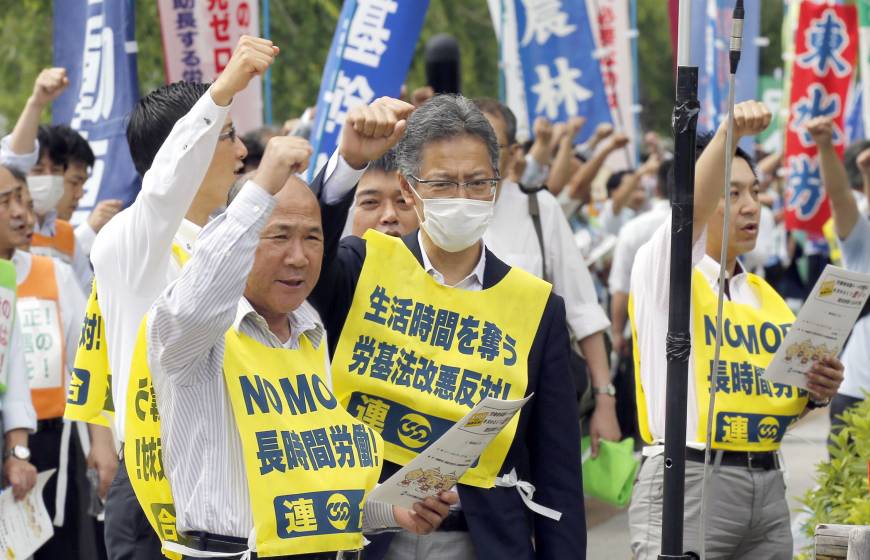Language school Gaba must recognize the right of instructors to strike, the Tokyo Labor Commission ruled today.
Tozen Union and its local chapter Gaba Workers Union sued the language giant in 2016 to overturn warning letters issued to strikings teachers.
Gaba has its more than one thousand teachers on private service provider contracts called gyomu itaku. The company argued that since each teacher is just a service provider, they don’t have the rights of workers under Japan’s Trade Union Act.
The board noted that the teachers effectively qualify as workers for the purpose of that law and that the company must apologize to both unions for interfering in their strike.
Osaka Labor Commission had previously recognized the right to collective bargaining of a union organizing teachers at Gaba (General Union).
Management tried to overturn that ruling and argued that even IF teachers have the right to bargaining, they should not also have the right to strike.
In Japan, the rights to solidarity, collective bargaining, and collective action (including strikes) are enshrined as a set in Article 28 of the Constitution.
“This is a victory for all Gaba instructors, including non-union members,” said Gaba Workers Union President Tyler Christensen.
“It confirms what we’ve always said – Gaba instructors have the same rights as regular employees,” he added. “Now that our right to strike is secure, we look forward to getting back to the bargaining table and continuing to improve working conditions for Gaba instructors.”
The board rejected Gaba’s claim to be able to split the three rights (rodo sanken) as a theory they “just made up.”

